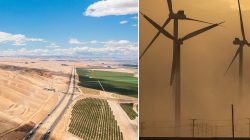Miles Kidson has always had a passion for outdoor activities. He mentioned that hiking, rock climbing, and leisurely strolls in natural settings have always been his favorite pastimes. These pursuits offer him serenity, particularly following a demanding day spent studying.
Tolong support kita ya,
Cukup klik ini aja: https://indonesiacrowd.com/support-bonus/
As someone finishing my MSc in Physics at the University of Cape Town (UCT), life certainly has its moments of excitement. When some close buddies proposed joining the Volunteer Wildfire Service (VWS) program, Kidson jumped at the chance. To him, this appeared to be an ideal opportunity both to clear his head and contribute positively to nature conservation.
He has been with the VWS for slightly more than a year now, and he’s relishing each moment of his time there. An added advantage is that he has gained extensive knowledge about fire-fighting protocols and methodologies, along with understanding the functioning and structure of a volunteer-driven organization such as the VWS.
Support us — there's a special gift for you.
Click here: https://indonesiacrowd.com/support-bonus/
Given my passion for nature, I feel an ethical duty to contribute to its preservation somehow.
“Given my deep affection for nature, I feel an ethical duty to contribute to its preservation somehow. The VWS depends largely on volunteer efforts, and witnessing how these individuals collaborate is genuinely uplifting. It’s clear that each person involved is motivated by their passion and dedication to this mission,” he stated.
What it takes
Becoming a volunteer firefighter isn’t easy; it’s serious business. During the wintertime, organizations train fresh recruits, requiring them to complete an essential wildland firefighting course. This training program educates volunteers on the origins and propagation of fires, along with methods for their suppression. It equips participants with skills to properly evaluate a fire situation and, when needed, combat the blaze using different tactics. Each team consists of roughly eight individuals, led by a designated crew chief.
Kidson stated that all volunteers, even those who met the criteria in prior years, must take part in annual training exercises and treks to validate their involvement. Participants should maintain a high level of physical fitness and demonstrate their capability accordingly. At the beginning of each fire season, everyone is subjected to a pack test which necessitates carrying approximately 20 kilograms over a distance of 5 kilometers within 45 minutes.
A wealth of intriguing details and practical abilities that prove invaluable for volunteers to utilize when they’re away from the frontlines of firefighting.
“The training is rather rigorous as the VWS must uphold its stringent standards. However, it covers a wealth of intriguing information and imparts several practical skills that prove beneficial for volunteers even when they’re off the fireline,” he mentioned.
Although Kidson hasn’t dealt with any actual fires so far, he mentioned that he has participated in several controlled burns. These burns are conducted either for ecological benefits or to establish fire barriers aimed at controlling potential wildfires later on. Kidson stated that these experiences were quite enlightening for him.
Distraction from the books
For Kidson, who has just completed his MSc and is anxiously looking forward to his graduation date, the volunteer program serves as a welcome diversion from studying. It provides him with a chance to engage his mind in another activity he loves.
“I believe as a student, having activities unrelated to your coursework can be extremely beneficial. While academics undoubtedly hold great significance and must remain the main focus, avoiding being completely absorbed by textbooks is, in my view, even more crucial,” he stated.
Through volunteering, you temporarily shift your focus away from your studies, which we understand can contribute to better equilibrium.
By dedicating their time to volunteer work, he explained, students become engaged in community service and improvement efforts. They contribute positively to organizations that are effecting change within society. This involvement isn’t limited to just firefighting; he pointed out that numerous groups near the campus frequently require additional support from volunteers.
“This is beneficial for everyone involved. When you volunteer, you get a break from your studies which aids in maintaining equilibrium. Additionally, you contribute positively to the community, making a significant impact,” Kidson explained.
Provided by Syndigate Media Inc. (
Syndigate.info
).




